Affiliated Faculty

Jens Beckert is the Managing Director at the Max Planck Institute for the Study of Societies (MPIfG). Jens Beckert's primary research interest is in the sociology of markets. He combines approaches from economics and sociology, with particular attention to the insights emerging from the new economic sociology. Using a theoretical framework that is both action-oriented and institution-oriented, he focuses on the social, institutional, and cultural embeddedness of the economy. With his research group on markets at the MPIfG, Beckert looks at a wide spectrum of markets, and, particularly, expectations of the future in decision-making in the economy. His research aims at a sociological theory of economic action and capitalist dynamics.
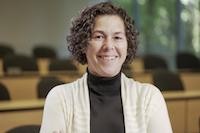
Beth Bechky is the Stephen G. Newberry Chair in Leadership and a Professor of Management at UC Davis Graduate School of Management. As an organizational ethnographer, Professor Beth Bechky’s research reveals the technical complexity of the modern workplace. Bechky’s recent book, Blood, Powder and Residue: How Crime Labs Translate Evidence into Proof, has just been published by Princeton University Press. In it, she shows how the work of forensic scientists is fraught with the tensions of serving justice—constantly having to anticipate the expectations of the world of law and the assumptions of the public—while also staying true to their scientific ideals.

Daniel Beunza is Professor of Social Studies of Finance at Bayes Business School (formerly Cass). Beunza's research explores the ways in which social relations and technology shape financial value. His award-winning study of a derivatives trading room on a Wall Street bank traced the roots of extraordinary returns to the use of space and internal organization. Beunza obtained his PhD from New York University, and has previously taught at Columbia University, the London School of Economics and Copenhagen Business School. Beunza’s recent book, “Taking the Floor: Models, Morals and Management in a Wall Street Trading Room” (Princeton University Press) considers the moral consequences of the use of economic models on Wall Street, and has won the 2020 George Terry Award by the Academy of Management and the 2020 Best Book Award by the European Group on Organisation Studies (EGOS).

Pablo J. Boczkowski (he/él) is Hamad Bin Khalifa Al-Thani Professor in the Department of Communication Studies at Northwestern University. He is also founder and director of the Center for Latinx Digital Media at Northwestern; and co-founder and co-director of the Center for the Study of Media and Society in Argentina, a joint initiative of Northwestern and Universidad de San Andrés.
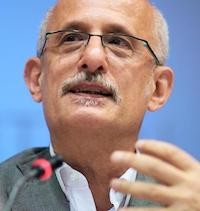
Laszlo Bruszt is co-director of the CEU Democracy Institute is Professor of Sociology at the Central European University. During the regime change in 1989 he served as National Secretary of the newly formed independent trade unions and has represented them in the Roundtable Negotiations. He started to teach at CEU in 1992 and has served as its Acting Rector and President in 1996/97. Between 2004 and 2016 he was teaching at the European University Institute in Florence, Italy. His publications focus on issues of regime change and economic transformation. His more recent studies deal with the politics of economic integration of the Eastern and Southern peripheries of Europe.
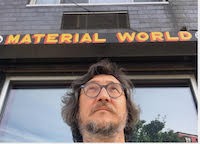
Koray Caliskan is Associate Director/Professor of Strategic Design and Management at Parsons and an Associate Editor of the Journal of Cultural Economy. Currently, he works on economic sociology of online advertisements. His last book Data Money: Inside Cryptocurrencies, Their Blockchains, Markets and Communities will come out in 2023 by Columbia University Press.

Simone Ferriani is Professor of Entrepreneurship & Innovation at Bologna University and at City, University of London. He is also a lifetime member of Clare-Hall College (University of Cambridge) and a Fellow of the Higher Education Academy. Prof Ferriani’s current research employs a mix of qualitative techniques and large datasets to study the social sources of innovation. In his latest work, he is using a combination of experimental and network analytic methods to examine the network and cognitive bases of recognition in creative and cultural fields. Simone is also working at the intersection of historical methods, lab experiments, and linguistic analyses to study how entrepreneurs and innovators elicit support from their target audiences.
https://www.bayes.city.ac.uk/faculties-and-research/experts/simone-ferriani
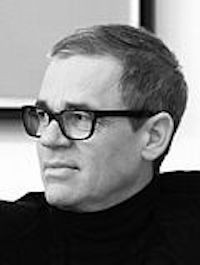
Gernot Grabher is an economic geographer and Professor of Urban and Regional Economic Studies at the HafenCity University Hamburg. His current research revolves around four key issues. (1) Beyond relations. Do digital platforms imply a shift from (contractual) networks to (algorithmic) interfaces? (2) In the lab. Do smart-city projects propel the transition from normative planning towards experimental urbanism? (3) Out of sync. Under what conditions do dis-entrained project schedules benefit creativity? (4) On the edge. How can regions leverage (relationally and geographically) marginal positions for innovation?

Victoria Johnson is Professor of Urban Policy and Planning at Hunter College. She earned her PhD in sociology from Columbia in 2002, writing a dissertation that was published as Backstage at the Revolution: How the Royal Paris Opera Survived the End of the Old Regime (University of Chicago Press, 2008). She earned her undergraduate degree at Yale in philosophy in 1991, also studying music and art history there before moving to Berlin to spend a year at the Humboldt-Universität.
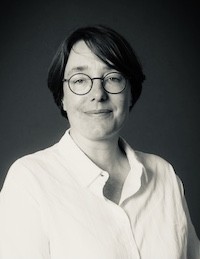
Noortje Marres is Professor in Science, Technology and Society in the Centre for Interdisciplinary Methodologies at the University of Warwick. She is a Visiting Professor at the University of Siegen (Germany) affiliated with the Media of Cooperation Research Programme. Marres studied Sociology and Philosophy of Science and Technology at the University of Amsterdam, and did her doctoral research at that same university, and at the Centre de Sociologie de l’Innovation, Ecole des Mines (Paris). Her work contributes to the interdisciplinary field of Science, Technology and Society (STS) and investigates issues at the intersection of innovation, politics, environment and everyday life: problems of participation in technological societies; the role of mundane objects in contemporary democracy (“material publics”); living experiments; the changing relations between social science and social life in a digital age.

Yuval Millo joined Warwick Business School in 2016 as Professor of Accounting, having previously held positions at the University of Leicester, LSE and the University of Essex. Yuval is a leading contributor to the field of Social Studies of Finance (SSF). Yuval's research approach is inherently inter-disciplinary, combining theoretical and methodological elements form accounting, finance and sociology. Yuval's research seeks to understand the social and technological processes that underpin valuation. To do so, Yuval examines empirically the development of valuation in different settings, among which are social impact, impairment of assets, securities analysts' practices and algorithmic trading.
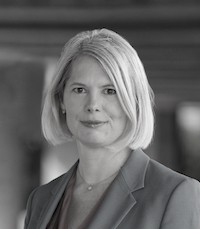
Gina Neff is the Executive Director of the Minderoo Centre for Technology & Democracy at the University of Cambridge. Her books include Venture Labor (MIT Press 2012), Self-Tracking (MIT Press 2016) and Human-Centered Data Science (MIT Press 2022). Her research focuses on the effects of the rapid expansion of our digital information environment on workers and workplaces and in our everyday lives. Professor Neff holds a Ph.D. in sociology from Columbia University and advises international organisations including UNESCO, the OECD and the Women’s Forum for the Economy and Society. She chairs the International Scientific Committee of the UK’s Trusted Autonomous Systems programme and is a member of the Strategic Advisory Network for the UK’s Economic and Social Research Council.

José Ossandón is Associate Professor at the Department of Organization, Copenhagen Business School (Denmark). His current collaborative research focus on the work and techniques deployed in the organization of markets designed to deal with collective problems, and, on the different practices involved in managing households’ finance. He is co-editor-in-chief of Valuation Studies and senior editor of The Journal of Cultural Economy.

Balazs Vedres is a Professor at Central European University. Vedres' research furthers the agenda of developing data science and network science with social theoretical insight. His research results were published in the top journals of data science, network science, and sociology, with two recent articles in the American Journal of Sociology developing the pragmatist notion of structural folds: creative tensions in intersecting yet cognitively diverse cohesive communities. In his ongoing research Vedres is analyzing the impact of launching a bot on Wikipedia on the strength and survival of human collaborations for bot owners.
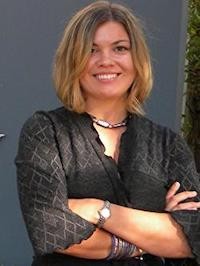
Janet Vertesi is Associate Professor of Sociology at Princeton University. Professor Vertesi specializes in the sociology of science, knowledge, and technology. Her primary research site is with NASA's robotic spacecraft teams as an ethnographer. Her books, Seeing like a Rover: Images and Interaction on the Mars Exploration Rover Mission (Chicago, 2015) and Shaping Science: Organizations, Decisions, and Culture on NASA's Teams (Chicago, 2020) draws on her ethnographic studies of missions to Mars, Saturn, and the outer planets to examine how organizations matter to scientific discovery. She holds a Master's degree from Cambridge and a PhD from Cornell, has received several grants from the National Science Foundation, and has been awarded top prizes for her work from the ASA's Science, Knowledge and Technology Section and Communication, Information Technology and Media Section, and the Society for Social Studies of Science.
